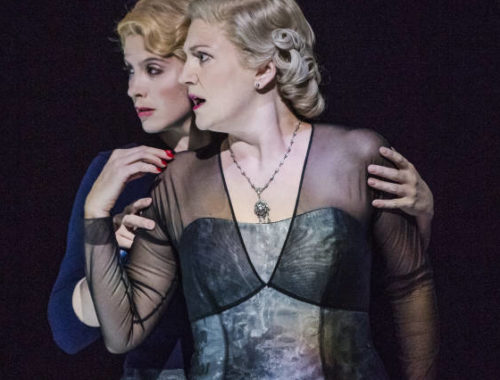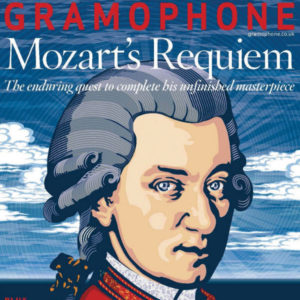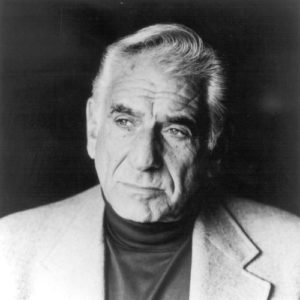GRAMOPHONE Review: Heggie – It’s A Wonderful Life
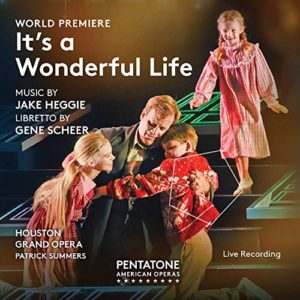 It’s interesting – and revealing – that Pentatone has a designated “American Operas” series. It’s an acknowledgement, if you like, that there is something very particular, very recognisably “American”, about the USA’s contribution to the genre, something that separates them from the world of international contemporary opera. It’s in their traditions, their songs, and most certainly the legacy of their musical theatre.
It’s interesting – and revealing – that Pentatone has a designated “American Operas” series. It’s an acknowledgement, if you like, that there is something very particular, very recognisably “American”, about the USA’s contribution to the genre, something that separates them from the world of international contemporary opera. It’s in their traditions, their songs, and most certainly the legacy of their musical theatre.
No one but Americans could reasonably have attempted to “operatise” Frank Capra’s iconic movie or indeed the story from which it was derived – The Greatest Gift by Philip Van Doren Stern. Indeed when I heard that Jake Heggie and his now constant collaborator Gene Scheer were attempting to do so I wondered if even they could pull off a music drama that chimed with the ethos and embraceable homespun sentiment of that much-loved movie. But they are a perfect fit and the wonder is that they have caught so faithfully the deep and abiding spirit and American tinta of this small town allegory. Right from the outset where we find ourselves among the stars with a young lady who might or might not be an angel on what might or might not be a tree swing there is this magical celestial waltz which one instinctively knows will underpin the entire piece, quietly, ethereally nodding back to Rodgers’ Carousel. And as if to further honour America’s Broadway legacy the God-like voice that booms instructions to the heavenly host is none other than Patti LuPone.
The young lady on the swing is the most significant change from Capra’s movie. George Bailey’s guardian angel is no longer the ageing Clarence but a much younger Clara, Angel Second Class (Talise Trevigne) – eternally young after 200 years (age shall not wither them) but still striving for her wings. And it is through her eyes and through a series of portals to George’s past life (from the booklet photographs Robert Brill’s design for Houston Grand Opera looks strikingly beautiful) that we piece together what finally brings him to a bridge at midnight and to the brink of suicide.
Gene Scheer is such an accomplished librettist in his understanding of how words and music collude in the theatre, nailing the narrative concisely but letting the music run with the words towards all those emotional climacterics. It’s about the natural way in which speech becomes song and the way song takes wing to the next level of intensity. Heggie, for his part, is a born melodist, purveyor of the most grateful, “singable” vocal lines and a word-setter of real eloquence. I’m thinking of all that is recognisably homespun like the Stephen Foster-like fireside song intimated in Mary Hatch’s farewell to Bedford High. Or George and Mary’s rapturous duet at the close of act one (the excellent William Burden and Andrea Carroll) where truly we are in thrall to Capra’s warm embrace again.
These lyric “blossomings” are more often than not fleeting in nature, filling a phrase or even just a word, and if I have an overriding criticism of Scheer and Heggie’s treatment of this piece it is that opera is an elaboration of drama (which is the reason Stephen Sondheim gives for not liking it) and that I occasionally craved a fuller development of key dramatic moments through aria (song) or ensembles – I suppose one would call them old fashioned set pieces. Especially as there is such emotional engagement in Heggie’s melodies.
That said, a conspicuous masterstroke here is the climactic scene where Clara shows the despairing George what the world might have been like without him. For this bleak nightmarish tableau Heggie takes music out of the equation leaving Scheer’s words to resonate against an electronically derived white-noise. Sondheim did something similar in the final scene of Assassins where the drama necessitated a stark directness that only words could provide.
It’s a chilling precursor here to the joyous resolution to come. And in acknowledgement of the way in which this allegory and Capra’s movie speaks to us all Scheer and Heggie have a twist in store. As Clara finally gets her wings she sees something. She’s not counting stars, she’s counting angels, she says. Where? As the house lights come up she points to the audience. We all have our stories, our heartaches. But we are invited to sing. What? Auld lang syne, of course. Message received. Not a dry eye in the house – or in my living room.
You May Also Like
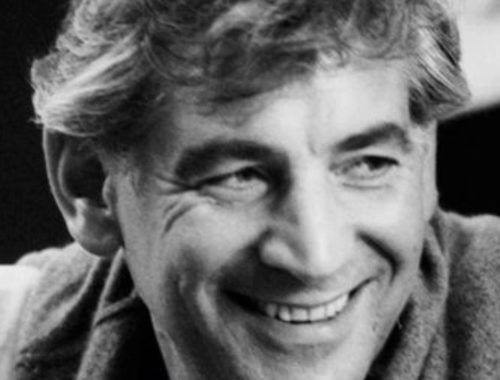
GRAMOPHONE Feature: Bernstein The Composer
15/08/2018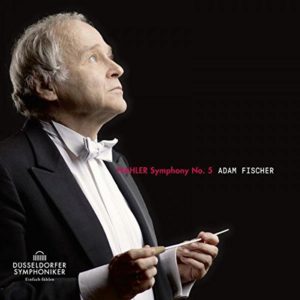
GRAMOPHONE Review: Mahler Symphony No. 5 – Düsseldorfer Symphoniker/Fischer
17/07/2018